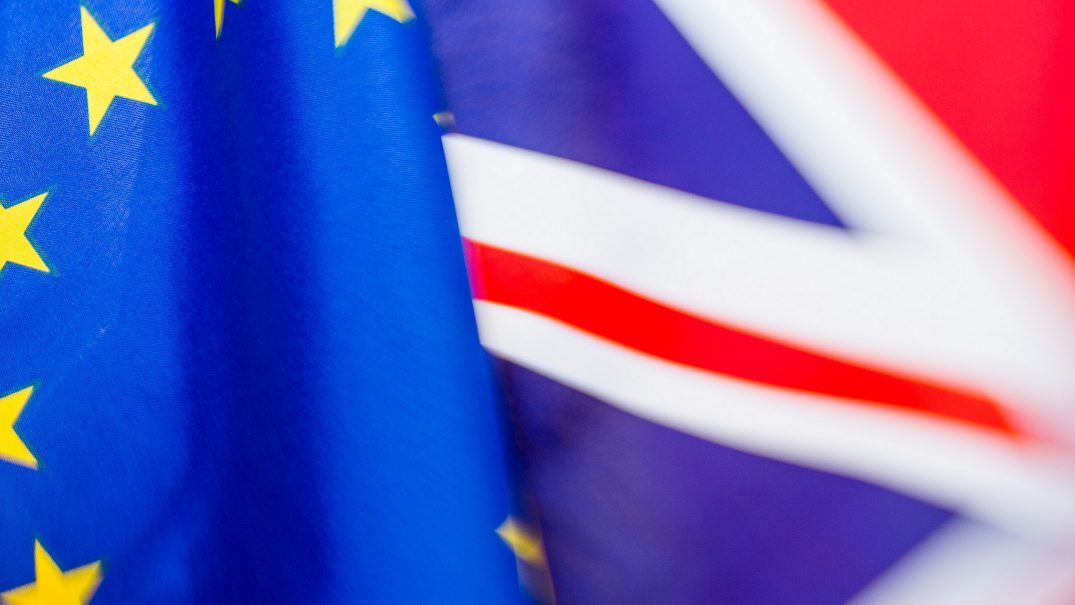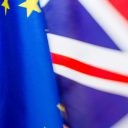The path towards a ‘soft Brexit’ has been established, but the real disjuncture may still lie ahead

Image: Bankenverband – Bundesverband deutscher Banken, Public Domain
The divorce deal between the UK and the European Union (EU) agreed earlier this month has effectively averted the immediate prospect of a ‘hard Brexit’. After the UK’s capitulation on a range of key sticking points, talks on some sort of trade deal will now ensue. Any new arrangements will be preceded by a lengthy transition period during which nothing much will change. But we should be wary of assuming a return to an approximation of the status quo; the EU is being transformed from the top down, and it is unlikely that a half-in, half-out UK will be a viable part of its next iteration.
Brexit means…
I had predicted we would end up more or less where we are now shortly after the June 2016 referendum. Able to marshal only narrow and technical arguments in favour of EU membership, the UK’s overwhelmingly pro-EU business elite had little influence in the referendum campaign, but much more where it matters, over policy development. In the Remainer Theresa May they had a Prime Minister determined to deliver a ‘soft Brexit’, while able to retain just enough trust among leave voters.
Then the snap election happened. May threw away the parliamentary majority she needed to deliver Brexit on her terms; victorious over Labour’s Eurosceptic leader Jeremy Corbyn, but ultimately outsmarted as ‘the Brexit election’ became an opportunity instead to protest against a perceived fait accompli.
What few realised at the time, however, was just how much the soft Brexit cause would be helped by the Conservative Party’s enforced alliance with the DUP. While May has undoubtedly been weakened by the election result, the DUP’s refusal to endorse a Brexit deal that left the door open (in order to maintain the Good Friday agreement) to regulatory divergence between Northern Ireland and the mainland has proved to be a quite convenient constraint.
The leaders of the Scottish and Welsh governments, and of the Greater London Authority, quickly seized on the original draft to argue that they too wanted the opportunity to diverge from the rest of the UK, when the UK starts diverging from the EU after Brexit – even if Northern Ireland did not. But Theresa May believes in the union a great deal more than the payday patriots in the hard Brexit camp.
As such, underlying the redrafted deal is a quite remarkable concession. Brexit means Brexit means leaving the single market and customs union. But not if this ends up being too difficult! If the UK cannot agree trade arrangements that essentially replicate the single market and customs union – satisfying London and the devolved nations – while pretending to do the opposite, then we will leave the EU while retaining membership of both. We will not, after all, be taking back control over EU migration or trade policy.
This would, the agreement suggests, be a direct consequence of the Irish border problem. But since the Irish border is also a UK-EU border, the ‘fallback’ position would apply to the UK as a whole.
Labour continues to offer no meaningful input to the national conversation on Brexit, repeatedly vacating space for hard Brexit fanatics to offer the only sustained critique of May’s strategy. An aversion to single market membership is necessitated by Jeremy Corbyn and John McDonnell’s somewhat antiquated perspective on the EU, and the calculation that free movement of labour (a requirement of the single market) is unpalatable to a sizeable chunk of the Labour vote.
The only serious policy thinking – the thing between principle and politicking – on Brexit on the Labour benches is being done by the rather apolitical shadow Brexit secretary Sir Keir Starmer. But Starmer’s advocacy of a single market ‘variant’ for the UK has the misfortune of being the only plausible scenario now available. Home truths are bad politics.
What lies ahead?
As Richard Jones and I have argued, soft Brexit will be better for the UK economy, and especially the prospects for a new industrial strategy in the medium term, than ‘no deal’ would have been. But this is not a moment for celebration. The UK economy remains riddled with severe shortcomings, and it should be acknowledged that EU membership had allowed the UK to develop a growth model based on its structural advantage in financial markets. The Brexit vote was, in part, a fairly forgivable form of ‘voice’ for those ‘left behind’ by this model.
At best, soft Brexit kicks the need to confront these problems down the road a little. But this road remains a perilous one, because the EU itself is undergoing a transformation. It is the nature of this transformation – the trajectory of which the UK will have few ways of influencing – that foretells the more significant Brexit to come.
The UK’s departure extinguishes all hope of the EU moving towards a ‘Europe of the regions’ model, which attracted support before the 2008 crisis. By decentring nation-states within EU governance, this model would perhaps have helped to assuage the UK’s internal contradictions, but essentially signalled the end of the ‘ever closer union’ project which underpins both the EU’s ability to shape domestic governance in member nations, and its credibility as an international actor.
Instead, a state-led process of enhanced integration will now ensue, led by German and French elites. The Spanish government’s reaction to Catalonian independence ambitions is therefore a direct consequence of Brexit – a weakened Spain risked losing its seat at the reconfigured top table. The new approach will also accommodate, rather than challenge, the new authoritarianism evident in many countries of Eastern Europe. Democratic legitimacy is not central to the new European project.
The shape of the new EU has been outlined by the response to the financial and sovereign debt crises in the Eurozone, as emergency responses are institutionalised, exemplified by new forms of macroeconomic surveillance. Such powers are centred on the EU Commission – and its president Jean-Claude Juncker would clearly like to go much further – but it would be wrong to see this stereotypically as a contest between Brussels bureaucrats and member-states. The Commission is dancing to the tune of the most powerful members, and Juncker is very much their man.
Ironically, the new Europe is in many ways a product of a long-running process of Anglicisation, transposed to the supranational level – the EU is building a powerful central government to enforce an ostensibly liberalising economic programme.
Helen Thompson has rightly argued that the UK’s non-membership of the Eurozone had been becoming untenable, given the contradictions between the City of London’s financial entrepôt function and (German-led) European Central Bank regulation. While the City’s status, entrenched in the single market and upheld by the European Court of Justice, concerned Germany and France, it also exacerbated socio-economic divisions at home.
Elite support for Brexit in the UK can in large part be explained by a fear that Germany and France were gearing up to challenge the City’s power. Popular support for Brexit arose for almost the opposite reason, in defiance of a City-centred growth model. The alliance of these two groups is, frankly, bonkers. But such alliances are also stupefyingly mundane facts of political life, especially in the UK.
The apparent genius of the soft Brexit option is in navigating these contradictory developments at the national and supranational levels. Single market membership will be retained, while the prospect of Eurozone membership is decisively iced. As such, the UK may continue to use unconventional monetary policy to paper over the cracks in the British economy, without significantly jeopardising existing patterns of wealth distribution.
However, while the remaining EU may tolerate this compromise for now, it cannot last. A cleaner Brexit will be a near-inevitable marker of the next phase of European integration. But this project remains at an early stage, and could yet be derailed by the fragility of the post-crisis recovery. Soft Brexit is a short-term fix for the EU, as well as the UK.
Perma-Brexit?
It is beyond doubt that the post-Brexit EU will be messy and uneven, and accompanied by resistance. All political constructions routinely face such challenges. However, while disintegrative dynamics certainly exist, prophecies of doom are premature, especially insofar as they overlook the determination of the German and French states to reset the integration project.
The political capital required to manage integration from now on will be significant. There will, for instance, be much less scope for non-EU countries to benefit from single market membership. Members of the European Free Trade Association (EFTA) will experience the obligations associated with the European Economic Area hardening over time.
EFTA has been regularly promoted in the UK by a strangely over-informed group of soft Brexit aficionados. But membership of EFTA for the UK has never been on the table, and never will be. Technically, EFTA’s members (Iceland, Norway, Liechtenstein and Switzerland) could let the UK in. The problem is that the EU would in practice prohibit such a move, barring a radical reconstitution of the EU-EFTA relationship. EFTA is essentially a small group of satellite economies. Its own status will be questioned eventually by the new (leaner and meaner) EU, so it is hardly about to let the EU’s biggest headache – Europe’s financial centre and third biggest economy, no less – join just because we asked.
There will be no free-riding. The UK will have to demonstrate its value to Germany and France if its bespoke soft Brexit compromise is to endure beyond the short term – and while a relationship with the UK after Brexit has clear economic advantages, it has clear political disadvantages. And even the economic benefits will be significantly undermined if the UK rejoins the single market but not the customs union.
And once the UK formally leaves the EU in 2019, the prospect of returning as a full member will quickly evaporate, at least for a generation or two. It is not clear of course whether the UK would want to rejoin the EU once its post-Brexit transformation starts to take shape. The UK is a hugely unequal and disjointed economy and polity, and the preferences of different groups are quite often very far apart.
Even with a soft Brexit, EU-UK relations are likely to become further strained. Given that the new trade arrangements will not solve the UK’s malaise, I would expect that over time the mechanics of the UK’s relationship with the EU to again become politically charged, and indeed scapegoated. The only question is whether EU tires of us before we tire of them.
It is far easier said than done, but the UK needs to make its mind up, and quickly, about what kind of economy it wants to be. No politician, left or right, has dared to address the development trap which now ensnares us. Brexit did not cause, but will accelerate, the UK’s migration to the outer core of the global political economy (parts of the country are already firmly peripheral). We will be too weak to fend for ourselves, but too large to rely on Franco-German patronage.
Even if a new industrial strategy were to start bearing fruit, the UK simply has too many people and too many problems for success in a few new industries to have a transformative impact. We may well remain a large, resourceful and wealthy economy for the foreseeable future. But it might not feel like it for most. And our ability to retain and reproduce this status will, increasingly, be out of our hands.






